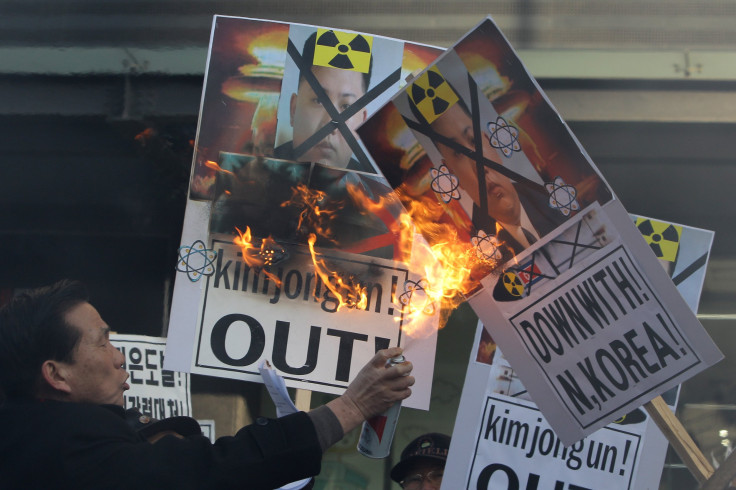North Korea Nuclear Test Update: South Korea To Resume Propaganda Broadcasts Against Pyongyang

South Korea announced Thursday that it will resume its propaganda broadcasts near the border with North Korea this week while Pyongyang is said to be in advanced stages of miniaturizing nuclear bombs that can be loaded on to ballistic missiles. Seoul's move follows North Korea’s announcement Wednesday that it successfully tested a hydrogen bomb.
The loudspeaker broadcasts toward North Korea at the inter-Korean border will begin Friday noon, said Cho Tae-yong, South Korea's deputy chief of the presidential office of national security, according to Yonhap. The move comes despite a deal signed between the two Koreas in August to improve ties, following which the broadcasts were halted. The agreement was reached after tensions in the region peaked following a landmine blast on the South Korean border that injured two of its soldiers. Seoul blamed North Korea for the attack, but Pyongyang has repeatedly denied the allegation.
Cho said, according to Yonhap, that the latest nuclear test by North Korea is a “grave violation” of the deal. Cho added that South Korean troops are ready for combat if North Korea conducts further provocation.
Meanwhile, South Korean intelligence officials said that North Korea may be nearer to miniaturizing nuclear weapons that could be mounted on ballistic missiles, Yonhap reported. Miniaturization is usually the last stage of developing a nuclear warhead-tipped inter-continental ballistic missile.
"It is beyond our intelligence whether North Korea has developed a miniaturized hydrogen bomb, but it is still believed to have achieved much of the miniaturization technology itself, given the time the country has taken in its nuclear development so far," an intelligence official said, according to Yonhap, referring to Pyongyang’s high-explosive detonation tests as key evidence of the assessment.
South Korean military officials also said that North Korea may conduct about two more nuclear tests to make smaller and tighter nuclear weapons.
North Korea's claim that it tested a hydrogen bomb was met with skepticism from the U.S. and South Korea. The Yonhap report cited officials saying that the country has not ruled out the possibility of North Korea testing a boosted fission bomb though the effect of such a bomb is much less than that of a hydrogen bomb. A boosted fission bomb is, however, said to be more powerful than an atomic bomb.
"Even if it was a test of a boosted fission bomb, it must have been unsuccessful," a South Korean defense ministry official, reportedly said, adding: "The destructive power of the Wednesday test reached 6 kilotons, it's far too weak for a hydrogen bomb."
Meanwhile, protests began in Seoul Thursday over Pyongyang's announcement that it successfully carried out the nuclear test, the Associated Press reported. About 150 people gathered in the South Korean capital and burnt effigies of North Korean leader Kim Jong Un. The protesters also cut up the North Korean flag and demanded the South Korean government to take strict action against Pyongyang.
© Copyright IBTimes 2024. All rights reserved.












